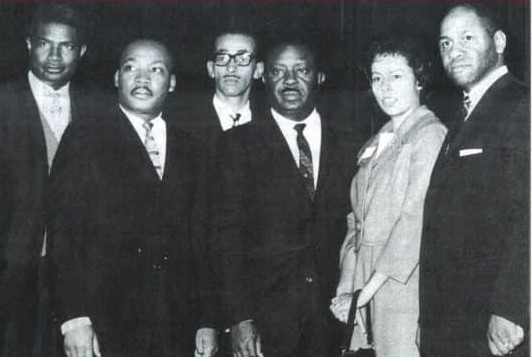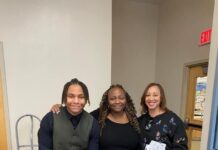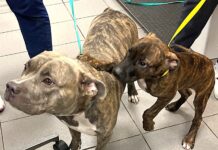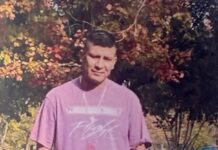
L-R-Ossie Davis, Dr. King, Rev. Wyatt Tee Walker, Rev Ralph Ambernathy, Phyllis Brown, Rev. Richard Dixon Jr. photo from White Plains Library Collection
By Dan Murphy
Dr. Martin Luther King Jr. visited Westchester on 12 occasions over an 11-year period (1956-1967), before his life was cut short on April 4, 1968, at the age of 39. In 2007, a memorial was built in front of the county office building in White Plains to memorialize his life and his time spent in Westchester. Dr. King’s birthday on Jan 15 1929 was made a federal holiday in 1983.
One of the best summaries about Dr. King’s visits to Westchester was written by Andy Bass for the Westchester County Historical society in 2018. A special edition of the Westchester Historian, the society’s quarterly magazine, features Bass’s lengthy, detailed and interesting piece. We encourage our readers, and lovers of Westchester history or MLK Jr., to purchase this magazine and read Bass’s piece, available at the Westchester Historical Society’s office in Elmsford for $10.
This story is not online. We thank Bass for his historical masterpiece and use it as a reference for our story about King’s Westchester visits for our readers.
Dr King’s visited to Westchester to give speeches, visit friends and colleagues in the civil rights movement, and to raise money for the Southern Christian Leadership Conference, his organization that was fighting to secure civil rights for black Americans in the south. We have taken out King’s two visits to Yonkers, to use as a separate story for our Yonkers Rising paper and online at Yonkerstimes.com.
Dr. King’s first visit to Westchester was in May of 1956, when he stayed at the Hastings on Hudson home of Psychologists Kenneth and Mamie Phipps Clark. The Clark’s studies on the effects of racial segregation on black children were used in the Brown vs. Board of Education case before the Unite States Supreme Court in 1954.
King and Dr. Kenneth Clark became friends after the Brown decision, and the Clark’s raised money to help the King family’s security. When King accepted an invitation to speak at an NAACP Legal Defense and Educational Fund Dinner at the Waldorf Astoria in 1956, the Clark’s invited him to stay in their Hastings home.
Dr. King, Coretta Scott King, and their young daughter Yolonda, stayed with the Clark’s for one night. Bass writes that the 1956 visit was Dr. King’s “only visit to Westchester in which he was accompanied by Coretta or any of his children, “and “the only time he stayed overnight in the country.”
Eleven years later, King would return to the Clarks’ home once again.
May 22, 1957: New Rochelle
The New Rochelle NAACP invited Dr, King to speak to their branch during the Montgomery Bus Boycott’s in Alabama. Reverend Melvin DeWitt Bullock, president of the New Rochelle NAACP, was the Pastor of the New Rochelle Union Baptist Church and was leading a movement to desegregate the New Rochelle public schools.
In 1962 the US Supreme Court of found that New Rochelle school authorities had in fact gerrymandered district lines to create segregated school districts. The court ordered the school desegregated and students within its district were permitted to enroll at other New Rochelle schools.
On May 27, 1957, roughly 900 people filled Bethesda Baptist Church of New Rochelle to hear King speak in Westchester for the first time. King did not return to New Rochelle despite several invitations from Rev. Bullock. During the 1960’s, King was getting hundreds of invitations to speak across the country.
Bullock and King remained in touch, but as Bass writes, both died before their 40th Birthdays.
In September of 1966, Rev. Bullock was found murdered in his New Rochelle home. There was no forced entry and Bullock was found alone. 57 years later, Rev. Bullock’s murder remains an unsolved crime.
April 19, 1958: White Plains
In 1957, King signed a book deal with Harper & Brothers to write about the Montgomery Boycotts. White Plains resident Hermine Issacs Popper was hired to help edit King’s book. Popper had also been involved with the Urban League of Westchester. The two met at the Popper’s White Plains home on April 19. King’s book Stride Toward Freedom: The Montgomery Story was a best seller, and Popper went on to work with King on two other books, Why We Can’t Wait, in 1964, and Where do We go From Here: Chaos or Community, in 1967.
April 30, 1959-Mt. Vernon. Bass writes about a little known event, when in early 1959 King was almost killed when a mentally ill woman stabbed King during a Harlem book signing. King underwent surgery and spent two weeks in the hospital. Several months after the attack, King agreed to appear at Mount Vernon’s Grace Baptist Chuch, in part because of the large capacity in the church. More than 1000 attended and heard King urge them to become more active in the civil rights struggle, but to do so without hate or violence. More than $12,000 was raised for the SCLC.
March 31,1960 Scarsdale. The Reverend Dr. M Forest Ashbrook, Deacon of the Scarsdale Community Baptist Church invited King to speak. The invitation came in 1959; King agreed to speak in March of 1960, which gives us an indication of King’s hectic schedule and backlog of events.
Like King, Ashbrook was a committed pacifist, and King’s topic for this address was Loving Your Enemies Bass notes how Correta Scott King later wrote about the importance of this sermon, which she said “was built on many private discussions we had about Gandhi and nonviolence and the power of Jesus’s love to change mind’s heart to behavior. A standing room crowd filled the Scarsdale community Baptist Church to hear King’s words.
September 21st 1962 Mount Vernon: King was invited by Reverend Richard Dixon Jr. to speak at a large voter registration drive in Mount Vernon. Dixon was Pastor at Mt. Vernon’s Macedonia Baptist Church. King and Dixon knew each other through their fathers, who were close friends.
Dixon agreed to also hold an SCLC fundraiser and King agreed to attend. The event was held at the larger First Methodist Church in Mt. Vernon. Speakers at the rally included Mount Vernon resident, actor and civil rights legend Ossie Davis. King told the crowd that “a threat to justice anywhere is a threat to justice everywhere. We will change the discord into a symphony of brotherhood. I firmly believe that we shall overcome.”
More than 1000 heard King’s sermon and more than $28,000 was raised for the SCLC. Dixon later served as the President of the Urban League of Westchester.
December 11 1962 White Plains: The biggest event Dr. King attended in Westchester was held at the County Center in White Plains. Noted civil rights activist, attorney and Rye resident William Kunstler organized the event. King took note of Kunstler’s legal work on behalf of the freedom riders.
The 4200 seat county center would host King and Sammy Davis Jr. Prices ranged from $2.50 to a $50 ticket that include a reception with King. New York Senator Herbert Lehman and Westchester Congressman Ogden Reid were chairman of the event. Jackie Robinson, Harry Belafonte and Sidney Poitier also lent support. Expectations did not meet the actual attendance, 3500, and money raised was $12,000.
Three months before the event, in September 1962 a member of the American Nazi party rushed to a platform where King was speaking and struck him twice in the face, explaining that he became enraged with King when he announced that Davis would be on the stage with King at the county center. Davis had married a white woman, Mae Britt, and King’s attacker opposed ‘race mixing.
1964 Pocantico Hills: Another fascinating part of Bass’s story is the relationship between Dr. King and Nelson Rockefeller. Rockefeller became an ally of King’s starting in 1958, when he paid for King’s medical bills after the stabbing. writing “The importance of your work to make the American dream come true for all our citizens. All who truly share in that dream shall do everything possible to assist you. This is the great moral issue before America today I have complete faith in the ultimate outcome, the only question is how long, oh Lord how long, more power to you,” wrote Rockefeller to King in 1962.
When two churches were burned in Georgia, Rockefeller donated $10,000 to rebuild, and when the SCLC ran out of money to bail out their protestors, Rockefeller had King’s NY legal advisor Clarence Jones to the Rockefeller family’s Chase Manhattan back where he was handed a bag with $100,000 in cash for bail money.
King agreed to attend a Rockefeller fund raiser for the Urban League of Westchester in 1964. 80 guests including Jackie Robinson listened to King talk about the Civil Rights bill before Congress. King argued that the Civil Rights bill should not be watered down, King criticized Senator Barry Goldwater for saying that civil rights should be left up to the states. “If such matters were left to Wallace or Alabama, it would take 200 years to complete…No state has the right to do wrong.”
Nelson Rockefeller made a personal donation of $25,000 to the SCLC after King’s remarks. He also helped pay for an organize King’s funeral in Atlanta in 1968.
October 29, 1956: Eastchester & Scarsdale:
King’s last public appearance in Westchester was thanks to Scarsdale resident and real estate developer John Marquesse, who was close to King advisor Clarence Jones. Marquesse made donations to the SCLC, and was active in the civil rights movement and was a board member of Abbott House. King agreed to attend a fund raiser for Abbott House at Schrafft’s Country Restaurant in Eastchester. A private event at the Marquesse home before the dinner was attended by 200, with another 600 attending the dinner.
King’s sermon “The Dignity of Family Life” focused on a then recent report by NY Senator Daniel Patrick Moynihan about fatherless black family groups. King said that Moynihan’s report was alarming” and that the need was “to see it as a social catastrophe and meet it with an adequacy of resources.” The dinner raised more than $6000 for Abbott House and $3,000 for the SCLC. King’s address for Abbott House is the only one that is recorded and published.
May 27, 1967: Hastings-on-Hudson:
King’s final visit to Westchester was a return to his friends Kenneth & Mamie Phipps Clark. Kenneth Clark has convened the leaders of the Civil rights movement in the country to his home, including King and Andrew Young of the SCLC.
Some of those in attendance did not agree with King’s objections to the Vietnam War, believing that opposition to the war would hurt the civil rights movement.
After Kings death, Kenneth Clark said “Martin Luther Kin was the closest to a genuine saint that I have ever known…Even when he was angry at the thoughtless or cruel things people said or did, he never expressed his anger…Great human beings are rare. I think he is among the greatest spirits civilization has produced.”
Bass ends his work by quoting King from his 1965 address-“I have always appreciated the great support and the warm expressions of goodwill that I have gained during my visits to Westchester County.”
What a better way to remember Dr. Martin Luther King Jr. than recalling those that he touched personally with his visits to Westchester. And thanks again to Andy Bass for memoralizing his 12 visits, documented with 232 footnotes, many of which were used for this story.
Next week: Dr. King in Yonkers





